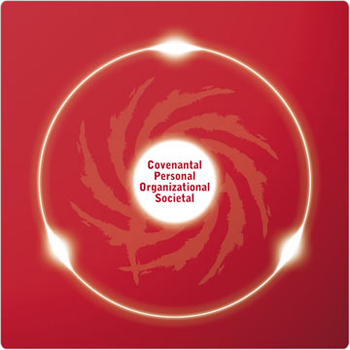Max KingismStudies Regarding the Errors & Cult of Max King |
 |
Presence Ministries Occult Symbol
(Nothing Christian Here!)
Building with Wood, Hay, and Stubble - An Examination of the King-Frost Resurrection Errors
Part II -Simmons' Examination of the King-Frost Resurrection Errors
The Unfortunate Eisegesis of Max King' Corporate Body View
"Trans-millenarianism” - A Critical Review of “the” Millennium According to Max King
____________
Kurt's Response to Don's Argument from Romans 11:26, 27 - Part I
Kurt's Response to Don Part II
____________
Preston-Simmons Debate
The Most Important Preterist Debate in Decades!
 Don Preston |
Where was sin defeated? AD 70 at the fall of Jerusalem or AD 33 at the Cross? Read >>> |
 Kurt Simmons |
______________________
Does King's Covenant Eschatology Lead to Universalism? Simmons-Frost Debate
____
Simmons/Frost Debate - A Critical Response to Kurt Simmons' Bi-Millennialism
Simmons' First Response to Frost
Simmons Second Response to Frost
___________________________
Max King – Presence Ministries – Planet Preterist
Web of Influence
The following quotes are not provided to attack anyone, but to demonstrate the unsound exegetical method issuing out of Max King's eschatology. If the reader will take the time to read the quotes and notice the progression of thought, he will see that "Covenant Eschatology" and the "Corporate Body" view of the resurrection are inherently Universalistic, and that the spiritualizing method typical of this school is a breeding ground for all sorts of astonishing errors. A good example of this is King's covenantal heavens and earth model, which has recently been adapted and applied to the Genesis creation and flood account to deny the Biblical model of creation and a universal flood.
Individuals quoted are either Universalists or are advocating views derived in some form or manner from Max King
|
|
Covenant Eschatology/ Corporate Body View
|
Covenantal Heavens & Earth
|
Baptism for the Dead/ Vicarious Atonement via First Fruits
|
Universalism (Actual or Functional)
|
Covenantal Genesis Creation/ Old Earth Creationism/Day Age Theory |
Local Flood
|
|
|
x |
x
|
x
|
x
|
? |
|
|
|
x |
x |
x |
x |
x |
? |
|
|
x |
x |
x |
x |
x |
? |
|
|
x |
x |
? |
x |
x |
x |
|
|
x |
x |
x |
x |
x |
x |
|
David Embury
|
x |
x |
x |
x |
x |
x |
|
|
x |
x |
x |
x |
x |
x |
|
|
x |
x |
x |
x |
? |
? |
|
|
x |
x |
x |
x |
x |
x |
|
|
x |
x |
|
|
x |
x |
|
|
x |
x |
|
|
x |
x |
|
|
x |
x |
|
|
x |
x |
|
|
|
x |
|
|
x |
x |
|
|
x |
x |
||||
|
|
x |
x |
x
|
|||
|
|
x
|
x
|
x
|
Presence Ministries' Universalism
|
“There’s no sin and no sin-related death in a world that has the New Jerusalem in it’s midst.” Kevin Beck, The Creation of Jerusalem, Feb, 08
|
“Simply stated, man is changed because his world changed. Man is reconciled to God because he no longer lives under the rule of sin and death as determined by the Mosaic world. Through the gift of Christ he dwells in a world of righteousness and life. The issue is cosmic and corporate, not individual and limited.” Tim King, Comprehensive Grace, 2005
|
“In the new world people are reconciled to God without any say in the matter. God loves all those that He has made in His image equally.” David Timm, Grace Upon All, Oct. 06
|
Planet Preterist’s Universalism
|
"Christ's sacrifice had been already paid once, for all people. As a result, they all have been redeemed yet not all have been made aware of the reality of redemption." Virgil Vaduva, The Ugly Side of Preterism: Self-righteousness and the Politics of Personal Destruction, June, 2005
|
"As I mentioned before in conversations with other people, why is Universalism such a bad conclusion to preterist eschatology IF that indeed ends up being the conclusion?" Virgil on Thursday, February 21 @ 09:05:22 PST
|
If Jesus died for all the sins of all men and unbelief is a sin then why aren't all men saved? -- You tell me! Why do you think this debate is taking place right now? Virgil Vaduva, Planet Preterist post, Wednesday, September 14 @ 05:55:29 PDT
|
Covenant Eschatology – This system assumes that the Mosaic Law was the universal source of man’s condemnation, so that by its removal, mankind is logically universally justified. A logical correlary of this view is that the Law of Moses was valid and binding until AD 70, at which time (and which time alone) men were finally justified from sin - a dangerous doctrine that denies the cross of Christ! This view also interprets the "heavens and earth" of II Pet. 3, Heb. 12:26 and similar passages as references to the Old Law and Jewish nation; the new heavens and earth of Revelation 21, 22 are interpreted as the New Testament. Since unbelieving men are in the new heavens and earth (Rev. 22:15) proponents of Covenant Eschatology are forced to conclude that all men have been redeemed from sin (or choose to shut their eyes to this logical implication of their own teaching). In the words of Tim King “Man is reconciled to God because he no longer lives under the rule of sin and death as determined by the Mosaic world. Through the gift of Christ he dwells in a world of righteousness and life. The issue is cosmic and corporate, not individual and limited.”
Corporate Body View – This view has ties to Universalism going back to Robert Townely (1845). The basic assumption is that the eschatological resurrection consisted in justification by raising up the "dead body of Israel" under the law of Moses to life in Christ. As an integral part of King's Covenant Eschatology, this view is inherently Universalistic. Resurrection (justification) is predicated upon removal of the law, rather than the addition of grace. Since the law universally condemned, its removal universally justifies (assuming no other source of condemnation remains in its place).
Covenantal Heavens & Earth – Universalists find language of universal justification in Rom. 8:19-23, where the “whole creation” will be freed from the bondage of corruption to the liberty of the sons of God. They see sin and death as being determined by the Mosaic world, and life and righteousness for the universal body of mankind under the New Heavens and Earth in Christ. In the words of Kevin Beck, the president of Presence Ministries, “There’s no sin and no sin-related death in a world that has the New Jerusalem in it’s midst.” The idea that the heavens and earth are covenantal stems from apologetic attempts to explain passages like Heb. 12:26, 27 and II Pet. 3:7-10 solely in terms of the destruction of Jerusalem, while overlooking the world-wide events of the eschaton. (Ps. 2:8, 9; 110:5, 6; Dan. 2:44, 45; 7:27; Haggai 2:6, 7; Acts 7:31) The notion that the heavens and earth are symbols of the Old Testament, has recently been extended to the Genesis creation account and flood accounts, arguing that these were also merely local and covenantal.
Baptism for the Dead/First Fruits – This bizarre doctrine of King’s is on the decline, but it still occurs among his adherents with some modification. The basic premise is that the Gentiles obtain salvation only by being grafted onto the Jews by baptism, and that Old Testament Jews that were dead were vicariously added to Christ by the baptism of the living first fruit Jews. Universalists wed this concept with the corporate body view to extend salvation to all mankind.
To receive Kurt Simmons’ e-mail newsletter, The Sword & The Plow, click the Subscribe link:
All rights reserved.






